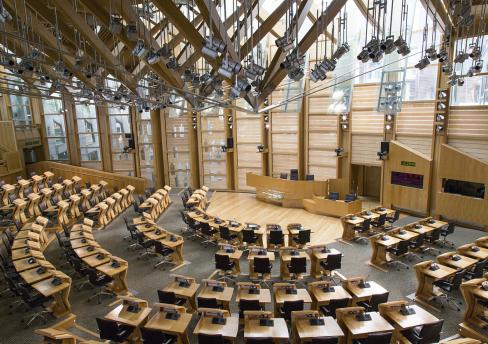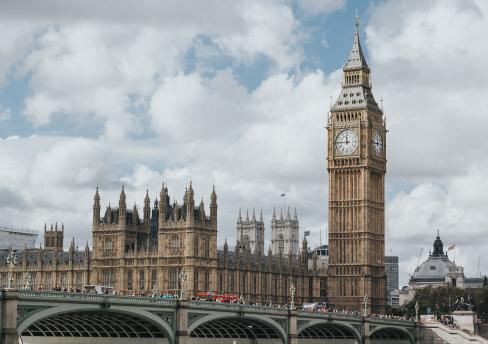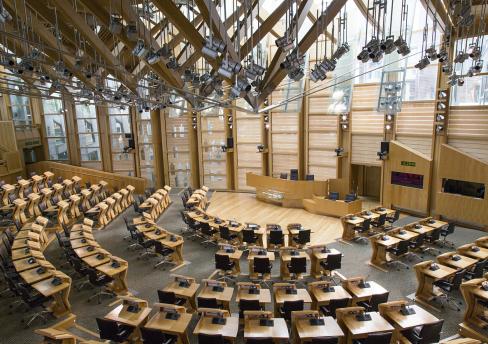
Over the past couple of years the word most commonly used by commentators discussing Brexit, both political and legal, has probably been "uncertainty".
The passing of the European Union (Withdrawal Agreement) Act 2020 ("the Act") has at least given a degree of certainty which is likely to be welcome, for different reasons, on both sides of the argument. The Act received Royal Assent on 23 January 2020 and has since led to ratification of the Withdrawal Agreement by the EU Parliament. The consequences were inevitable. The UK left the European Union on 31 January 2020. The flag came come down at midnight in Brussels and is apparently to head off to a museum. The UK MEPs have packed their boxes. The UK has entered into the transitional or implementation period. Despite Government comments to suggest the contrary, for the next 11 months the UK will be a rule taker not a rule maker. It will have no inside influence on EU policy development but will have to abide by it's decisions.
Negotiations will commence between the UK and the EU on trade and other matters and they will all be neatly tied up into a comprehensive Free Trade Agreement with the EU with "no quotas and no tariffs" by 31 December 2020. That at least is the UK Government plan, despite reservations being expressed by the EU and less optimistic commentators in the UK. This has all been made possible by the Act.
This is a very technical Act which went through both Houses of Parliament in under a couple of weeks, if you exclude the Christmas holiday period when Parliament did not sit. It was said by the UK Government that it was similar to the previous Withdrawal Agreement Bill which people had had ages to consider last year, therefore it was perfectly acceptable to deal with this Bill, as it was then, on what would normally be thought to be a very short timetable. With a parliamentary majority of 80, all of whom had signed up when parliamentary candidates to deliver Brexit, it did not really matter in practice that only a few days were given for consideration in the Commons. They were not going to rock the parliamentary boat. In the House of Lords, some peers did suggest amendments to restore some of the concessions and protections which had been given by the Prime Minister's predecessor in the previous version of the Bill. However these amendments were all rejected when the Bill went back to the Commons and the Bill as introduced effectively became the Act.
The purpose of the Act is to give effect to the Withdrawal Agreement which the Prime Minister agreed with the EU in autumn 2019. It was always anticipated that legislation would be needed to complement the European Union (Withdrawal) Act 2018 ("the 2018 Act") and to give effect to the terms of the withdrawal agreement. Much of the Act is amending the 2018 Act to make the legislation work. It is not an easy read and needs to be looked at with the 2018 Act, the Withdrawal Agreement and the Irish/Northern Irish Protocol readily to hand. What you will not need is the Political Declaration since agreement by Westminster to the Declaration does not feature in this version of the Act and the Declaration is now truly a political document with no legislative effect. The Act also makes provision to give effect to EFTA, EEA and Swiss agreements mainly in the context of citizen's rights, recognition of professional qualifications and coordination of social security systems. These and other matters are "separation issues", yet another new legal category we have to grapple with.
What the Act does to the "exit day" provisions in the 2018 Act are very important and very detailed when you look at the consequential and transitional amendments in the Schedules. "Exit day" was defined in the 2018 Act as the day the UK would leave the EU and on that day certain legal impacts would take effect to allow the UK to leave the EU. The European Communities Act 1972 is to be repealed and the UK leaves the EU. However those impacts are to be postponed until the end of the "implementation period" as it is referred to in the Act (but which is the same as the "transition period" referred to in the Withdrawal Agreement itself). Without the changes in the Act as to the effect of exit day then there could have been a "no deal" type crash out of the EU on 31 January 2020. However the effects of these changes only postpone the effect of exit day provisions until December 2020 at the end of the implementation period. If no further agreement is in place by then, there is the real possibility of a further "no deal" situation, a further possibility of a crash out of the EU and no further time to reach a wider agreement with the EU.
This uncertainty as to delivery of a wider agreement before the end of 2020 is because of a new politically driven provision at section 33 of the Act, which prevents Ministers seeking an extension to the implementation period although the Withdrawal Agreement itself allows for further extensions beyond the end of 2020 provided they are sought by summer 2020. This is a self-imposed constraint which may come back to haunt the Prime Minister.
Important provisions in the Act incorporate the Protocol on Ireland and Northern Ireland into the 2018 Act. This is to provide for the new arrangements on customs controls between Northern Ireland and the EU beyond the end of the implementation period. Whether this does deliver frictionless trade in both directions remains to be seen, and probably depends on whether you accept the EU or UK Government assessment of how this is going to work. It also includes provision for the "democratic consent" of the Stormont Assembly for the arrangement to continue in place which introduces another variable into the arrangements.
What the Act does not retain from the previous version is oversight by Parliament of the trade agreement negotiations to be carried out with the EU. While a healthy majority of 80 would probably have meant the Prime Minister could have any issues subject to parliamentary oversight safely voted through, he has reduced the scrutiny role of Parliament to the benefit of the Government as the Executive. The Government's approach to the Lords' amendments of the Act by overturning them completely suggests this is likely to be their approach going forward in relation to any challenge or change suggested.
Similarly, the Act has left out the provisions in the previous bill on environmental protections, as well as protections for workers rights and migration of refugee children. It is said these will be incorporated in other legislation. At section 32 it also removed the requirement for the Act to be further considered by Parliament in terms of the Constitutional Reform and Governance Act 2010 which requires additional time and consideration by Parliament where treaty ratification is required as would be the case here were the 2010 Act not disapplied.
Once again the Act contains an extensive use of secondary legislation powers to implement the provisions of the Act. This was a matter of concern in relation to the previous Bill and to the 2018 Act. There is extensive use of "Henry VIII" powers, the Act which allow secondary legislation to amend primary legislation and even to amend an act from which it derives it's power. While generally considered by those concerned with the powers of parliament and it's exercise of scrutiny to be a "bad thing", there were arrangements in the last Parliament for involvement of Scrutiny committees. These committees considered the secondary legislation which was to be made and could decide that it was sufficiently controversial, complex or making changes beyond what might be necessary to require additional scrutiny. In those circumstances they could require the legislation to be subject to a different process which would ensure more detailed scrutiny.
This additional, albeit informal but effective, parliamentary check has disappeared and it is now therefore a matter for the Government when drafting secondary legislation as to the level of scrutiny which might be applied, even in the exercise of the broad Henry VIII powers.
Added to general concerns on the scrutiny of secondary legislation there are also likely to be disputes as to whether the devolved administrations will consider that the exercise of powers by Westminster might stray into areas of devolved competence. The Scottish Parliament did not give legislative consent to the Act while it was passing through Westminster based not only on it's opposition to Brexit but also in respect of the nature of the secondary powers which might be used to affect Scotland and devolved competence. The usual statements were made that Westminster "would not usually legislate for" areas of devolved competence within the competence of the Scottish Parliament. It remains to be seen how far that undertaking will work in practice or whether the Scottish Government will be tempted to put forward parallel, or even different, legislation for Scotland.
It has been a priority for the Government to remove the influence and impact of the Court of Justice of the EU (the "CJEU"). It would usually be considered untenable to ignore the decisions of the Court in areas of retained EU law where no changes had been made to that legislation by the UK. Certainty as to what is the relevant law to be applied in any situation is important for a functioning legal system. The previous Bill effectively left the question of determining whether a court should be bound by retained EU case law to the Supreme Court or the High Court in Scotland. The Supreme court is on record as being concerned how difficult that judgement might be. The Act takes a power to allow Ministers, after consultation which certain heads of courts, to make regulations which can determine which courts will no longer be bound by retained EU case law. Even if the consultees disagree with the proposals, Ministers could decide to considerably reduce the level within the UK court hierarchy at which courts and tribunals will cease to be bound by retained EU case law. This is likely to be a contentious matter should Ministers decide to exercise the power. There are likely to be questions on the certainty and clarity of retained law, whether in substantive or case law, which is unlikely to be prove helpful for citizen and lawyer alike.
Somewhat surprisingly, section 38 of the Act states that "It is recognised that the Parliament of the United Kingdom is sovereign". This would appear to be an example of a classic declaratory section which probably has no legal effect at all, but gives politicians a degree of misplaced comfort. There have been lots of blogs and articles over the last few years discussing what "sovereignty" means in the context of leaving the EU. No doubt we can expect some more discussing this provision.
The Act has achieved certainty to the extent that it has provided for the UK to leave the EU on 31 January and has provided for an implementation period which will run until 31 December 2020. EU legislation and obligations will remain in place during the implementation period as will EU rights. The CJEU will still deal with EU cases from the UK and we can still travel to and work in the EU. The citizen may begin to wonder what Brexit actually meant at all since little will seem to have changed.
However the Act, when read together with the 2018 Act, under which extensive powers have already been exercised, contains very wide ranging powers to be exercised by the UK Government during the implementation period and beyond which have the power to impact considerably on daily life in the UK. How the powers are exercised has the potential to bring together various parts of the UK or to drive them apart. Questions are, and will continue to be asked on how far the powers of the devolved institutions are being affected and possible curtailed.
We now have certainty to the extent that there is a legislative framework underpinned by a Withdrawal Agreement and a Protocol for going forward into the implementation period. The UK will have another 11 months to prepare and will be further along the road for whatever lies ahead. However we are probably moving into a different kind of uncertainty as the legislative powers in this Act and the 2018 Act are exercised in ways we may not have anticipated at this early stage of the process and at the very beginning or trade and other negotiations with the EU. We should probably make the most of the relative quiet the implementation period may afford us.
The content of this webpage is for information only and is not intended to be construed as legal advice and should not be treated as a substitute for specific advice. Morton Fraser LLP accepts no responsibility for the content of any third party website to which this webpage refers. Morton Fraser LLP is authorised and regulated by the Financial Conduct Authority.









